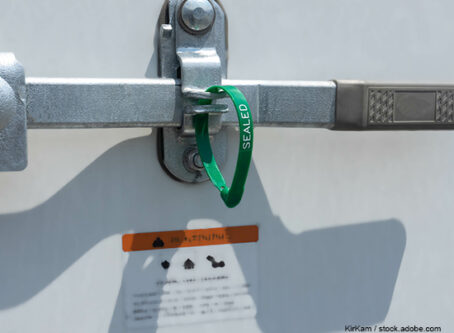Reworked heavy truck bill heads to House floor in Georgia
A Georgia House committee has reworked a bill to allow some 90,000-pound trucks on roadways throughout the state. The Owner-Operator Independent Drivers Association has encouraged Georgia-based truckers to reach out to their state lawmakers in opposition to the heavy trucks legislation.
Currently, trucks on Georgia roadways are limited to a maximum gross weight of 80,000 pounds. Exceptions are made for haulers moving products that include forest products, live poultry, feed and solid waste.
During recent discussion on the House floor, lawmakers decided to send HB189 back to the House Transportation Committee to revise the bill that drew criticism from state agencies, law enforcement and local governments.
As initially approved by the committee, the bill from Rep. Steven Meeks, R-Screven, called for opening the door to heavier loads for all types of trucks and all commodities. Specifically, a 12.5% variance of the 80,000-pound weight limit would be authorized for all loads.
OOIDA voices concern about heavier loads
In the days leading up to House floor consideration of the bill, OOIDA President Todd Spencer said higher weight limits historically are not a “winner” for most in trucking.
“While popular with shippers adding heavier weights on state and county roads is bad public policy,” he said. “You end up with increased wear and tear on roads and bridges not adequately constructed for those loads.
“Any perceived economic benefit going to truckers is quickly eroded by competition leaving truckers with higher costs for fuel and increased maintenance.”
An OOIDA Call to Action sent to members pointed out HB189 would add further pressure on state and municipal governments in Georgia to find funds to repair essential roadways when there already is not enough funding for current needs.
Opposition from state agencies, law enforcement, local governments
Points of concern voiced by OOIDA were echoed by many state and local officials who spoke at the hearing.
The Georgia departments of Transportation and Public Safety, and more than 100 local government officials, voice concerns.
Meg Pirkle, chief engineer with GDOT, said passage of the original bill would result in the agency needing to post load restrictions on more than 1,400 bridges around the state. The figure is double the current number of posted bridges.
She added the designations would result in larger trucks being required to follow long detours to get to a bigger highway. As a result, she said the change would cost companies time.
In addition, GDOT Commissioner Russell McMurry told lawmakers state and local governments would need to spend billions of dollars more than they already do for road maintenance.
Advocates representing poultry, forestry, and other industries say higher fuel costs, inflation and tight labor markets warrant the change. They add the change would help reduce emissions.
Revisions made in committee
The House Transportation Committee reworked the bill to focus solely on agriculture and forestry hauls.
Affected loads now are permitted to carry goods up to 84,000 pounds.
The revised bill would permit logging, farming and mining commodities to weigh up to 90,000 pounds.
Additionally, some trucks would be allowed to insert a third axle. The change would allow for heavier dump trucks.
Trucks hauling agricultural products, timber, granite, concrete or solid waste would be limited to travel up to 250 miles from the farm or other processing facility where the load originated.
“We have significantly pared back the number of vehicles that would be allowed to run under the weight limit,” Meeks explained to the committee.
As amended, HB189 passed the committee on a 12-7 vote. The bill has been sent back to the full House for consideration.
Executive order for heavier trucks
Gov. Brian Kemp previously issued an executive order during the pandemic to allow trucks with a gross vehicle weight of up to 95,000 pounds to operate on state and local roads. He cited the need to keep supply chains moving.
Regular extensions of the order have been made since. The most recent extension took effect in early February. The order runs through March 11.
Kathleen Bowen with the Association of County Commissioners of Georgia said at the initial transportation hearing the executive order sets guardrails for the process and is limited in its scope.
She noted as introduced, HB189 was a “free-for-all” with “no guardrails” for all five-axle trucks. LL









